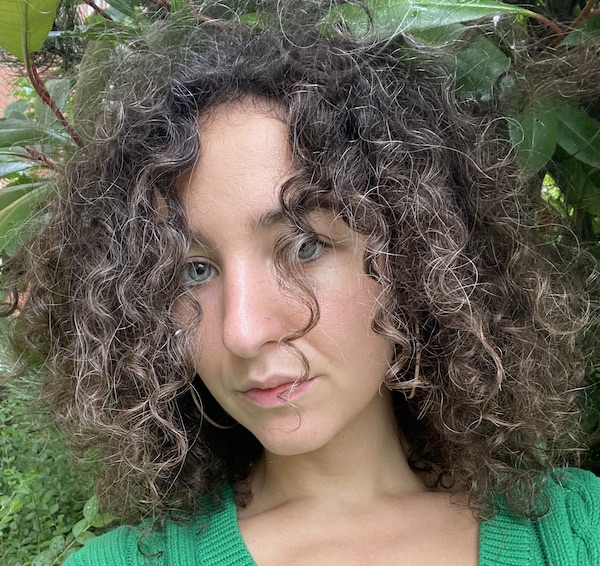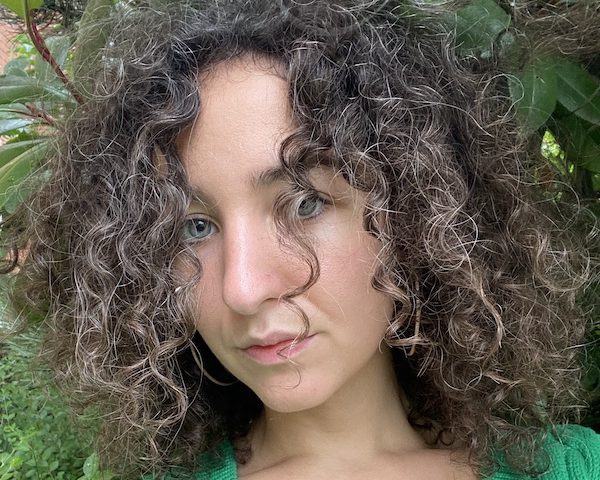Case Study: Yehudis is passionate about connecting with people. Once she started publishing consistently, her experiences became writing prompts, and she built an audience for her stories.
If you love writing but have never published, you’re missing an opportunity. The scenes of your life remain journal entries in a dusty drawer, concealed from the world. “Why would I share?” you ask. Instead, ask “What would happen if I did?”
Yehudis Milchtein wrote every day in her journal as a kid, posts annual updates to her Facebook friends, and gets a “certain joy” from writing good emails. Writing has always been a part of Yehudis’s life, but never publishing. That is, until she took Write of Passage.
In the past six months, since Cohort 9, Yehudis has grown from zero to over 200 newsletter subscribers and over 1,000 Twitter followers, with threads that have reached 300,000 views.
She’s currently rocking a 21-week publishing streak on her Substack and cites consistency as the reason writing is changing her life: “Before Write of Passage, I always wanted to write about my experiences, and I rarely did because I didn’t have this mindset and self-discipline,” she said. “Writing is helping me live more fully and to live beyond myself.”
Yehudis jumps at the chance to get to know someone new, whether it’s her Uber driver, a lady with pink hair, or her boyfriend’s ex. Maybe her knack for connection came from helping raise and educate her 13 younger siblings, or maybe it was a way to find herself after leaving Orthodox Judaism.
Before, human connection was her passion. Now, it’s that and more; Yehudis’s experiences are writing prompts, and she has an audience for her stories.
From Private to Published
Yehudis grew up in Milwaukee, Wisconsin in a large, orthodox family and used writing as a form of therapy. “When I was younger, I didn’t have a traditional life, and a lot of it was very difficult,” she said. “One of the ways that I breathed through it and kept moving, day after day, was by thinking of everything as a story.”
As Yehudis explains in an essay, her career as a teacher began when she was 11 years old:
With my mom giving birth every year and my dad working hard to support his ever-growing family, neither of my parents had time to dedicate to our homeschooling. Instead, my dad took us on a family trip to Ikea and bought school desks, a whiteboard, pens, and pencils. He then handed me a grade book, unofficially crowning me as my siblings’ full-time teacher.
Her home-life was traumatic and became something she wanted to escape:
By 19, I couldn’t handle the intensifying turmoil of my family. The emotional and physical abuse was relentless — we were beaten for acting out, and we acted out because of the beatings. Religion played a role in what my dad punished us for. If we didn’t dress appropriately, we were hurt. If we broke the rules of Sabbath, we were hurt. I needed out.
I didn’t know what I wanted but I knew it had to be different than what I’d lived.
Yehudis started writing for the therapy of self-expression. In life, there was conflict, deception, and desperation. In her journal, those became drama, mystery, and suspense.
While she didn’t publish what she wrote, she shared it with a few friends and family members. Positive feedback encouraged her to keep writing: “My grandmother always supported my writing. I would email her what I’d write, and she’d respond with so much love. I have her emails saved, and sometimes I randomly come across them, and it’s such a nice message,” she said.
In Write of Passage, Yehudis’s first essay was “Leaving Orthodox Judaism,” an intensely personal piece — unlike anything she’d ever made public. Before going to sleep in Brussels, where she now lives, Yehudis shared a draft of that essay with her peers. There were hundreds of students in the cohort from around the world, and many read her work as she slept. Yehudis woke up to a document filled with flattering praise and helpful criticism.
Maybe people do care about the stories in your drawer. After that overwhelming response to her first essay, Yehudis gave herself permission to publish. She started writing in public.
Yehudis creates “life portraits” — word-paintings that showcase moments of humanity and the beauty of life. “I write in a descriptive way that allows people to imagine the emotions and the expressions on the person’s face and the feeling that was between us,” she said. “That’s what a drawn portrait shows, and that’s what I’m trying to do with my writing.”

Few writers share Yehudis’s ability to reveal themselves on the page; her personality peeks through the white space between her words. Each of her essays is a portrait of life, and the collection of her work is a self-portrait. Read five of her essays, and you’ll know Yehudis better than your second-favorite cousin.
Imagine if she had never started writing in public, never started sharing these beautiful words with the world.
Consistency Leads to Quality
Yehudis’s single greatest take-away from the course is: publish consistently. “If I write consistently, I’ll figure it out. Everything comes from it,” she said. A lot has come from consistency already.

Maintaining her new publishing habit hasn’t been easy, but it’s been rewarding:
Unless I make space and time for my art to come out, it’s never going to come out. My life is so full of distractions. So, unless I force myself, it won’t happen. It sounds painful, but it’s not. It’s really freeing. It’s a sort of self-discipline.
It’s challenging to write in public and to publish consistently. But there are clear benefits to it that have kept Yehudis motivated. Consistency invites feedback, increases exposure, and improves quality.
Thoughtful feedback is fuel; it provides a signal for what resonates and what falls flat. Exposure generates opportunities; it increases your “luck surface area” and channels the Internet’s serendipity. Quality is fulfilling; the more you improve, the more you feel that what you’re doing is worthwhile.
These benefits — feedback, exposure, and improvement — are strong motivators that get Yehudis to sit down, write, and hit her self-imposed deadline every week — even when she’s not in the mood. Consistency is helping her march toward beauty.
My number-one goal is to write beautifully. I’ve been noticing that the more I write, the more often people are commenting that my writing is really good, as opposed to the story being good. And I love that! It’s happening as if by magic, but I know it’s just consistency.
If you, like Yehudis, love to write but have never shared your work, build a publishing habit. Because there are people who want to read what you write. There are people who care.
Share your stories and see what happens.



